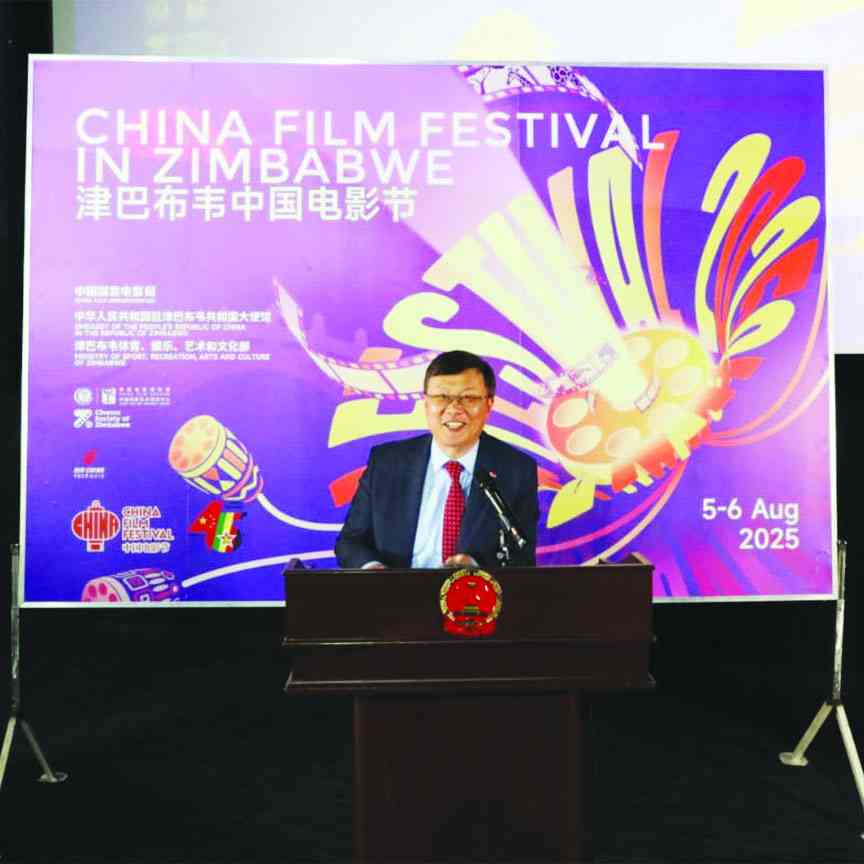
Cinema, with its universal grammar of images and emotions, continues to assert itself as a powerful agent of cultural diplomacy. The recent China Film Festival in Zimbabwe, held on Wednesday and Thursday this week, is a testament to this claim.
More than just a celebration of cinematic craft, the event marked the 45th anniversary of diplomatic relations between Zimbabwe and China — relations now being creatively reinforced through shared stories on screen.
Hosted at a time when both nations are re-evaluating the role of cultural production in economic development, the festival brought together diplomats, artists, policymakers and film-makers under one roof — affirming that film is no longer just entertainment, but an international language of mutual understanding and socio-political soft power.
Framing friendship
The festival opened with a succinct but potent infomercial that framed the film industry as not just an artistic endeavour, but a significant economic engine. It laid the groundwork for the two headline screenings: Panda Plan and You Only Live Once, films that, though different in tone and genre, carried consistent themes of perseverance, cross-species empathy and the navigation of contemporary challenges.
In her address, Emily Jesaya, Zimbabwe’s Deputy minister of Sport, Recreation, Arts and Culture, positioned the event as a high watermark in the country’s evolving cultural diplomacy.
She emphasised how platforms such as the China Film Festival allow for reciprocal cultural engagement: “Chinese cinema offers Zimbabweans a window into the nuances of Chinese creativity, while Zimbabwean music, film and visual arts are increasingly being recognised and appreciated across China.
“This two-way mirror of storytelling is not merely symbolic; it’s part of a broader diplomatic strategy to foster what President Xi Jinping calls the Global Civilisation Initiative, and what Zimbabwean President Emmerson Mnangagwa envisions through Heritage-Based Education 5.0. These visions coalesce around a common goal: to use cultural knowledge and technology to forge resilient, interconnected societies.”
- European film fest Zim shifts base
- Jakwara film competition to unearth new talent
- Edutainment mix: Appearance versus reality
- Black Panther 2 set for Zim premiere
Keep Reading
Stories that travel
Chinese ambassador Zhou Ding underscored the economic and emotional heft of Chinese cinema, noting that China’s film industry has now grown into one of the world’s largest, with a 2024 box office revenue of over US$6 billion.
The films showcased — Panda Plan, Hot and Spicy, The Chinese Pilot and Operation Red Sea — collectively grossed over US$7,3 billion in China, a testament not only to the technical prowess of Chinese film-makers, but also to the global relatability of their narratives.
Each selection was thoughtfully curated to showcase the versatility of contemporary Chinese cinema. From the heartwarming antics and environmental messaging in Panda Plan to the adrenaline-fueled realism of Operation Red Sea, these films are not just entertainment — they are ambassadors of Chinese values, aspirations, and collective memory. Perhaps most moving is The Chinese Pilot, a dramatisation of true events that taps into the universal motif of heroism under pressure — transcending borders, cultures and ideologies.
Cinematic soft power
Richard Tenton, founder of the Cinema Society of Zimbabwe, aptly described the inaugural festival as “a manifestation of 45 years of sovereign cooperation and shared development goals.”
That phrase captures the subtext of the entire event: this is not merely a cinematic exchange, but a projection of mutual respect and soft power diplomacy.
The festival, jointly organised by the Chinese embassy Sport, Recreation, Arts and Culture ministry, the Cinema Society of Zimbabwe and the China Film Art Research Centre, is emblematic of a new cultural contract between Zimbabwe and China.
Final take
In a media landscape often dominated by Hollywood’s hegemonic narratives, the China Film Festival in Zimbabwe offered a compelling alternative: the idea that every nation deserves to tell its own story, in its own way, with its own cinematic grammar.
It celebrated not just the ties between two governments but the growing bond between two peoples who see themselves reflected in each other’s stories.
By anchoring diplomacy in creativity, and cultural exchange in film, Zimbabwe and China have taken a bold step toward a future where the screen is not a barrier, but a bridge.






